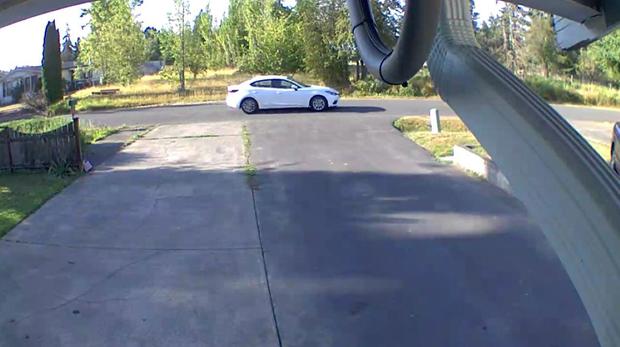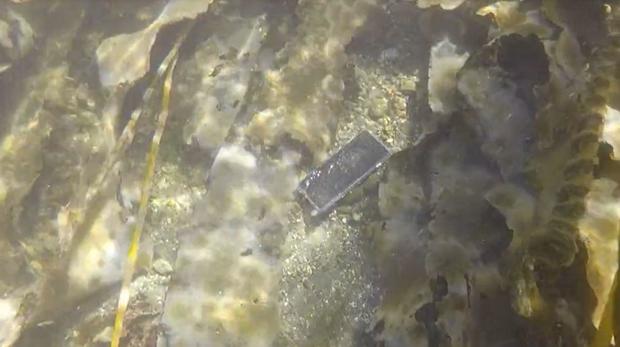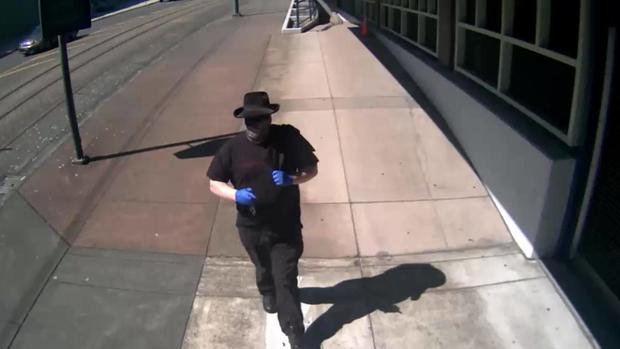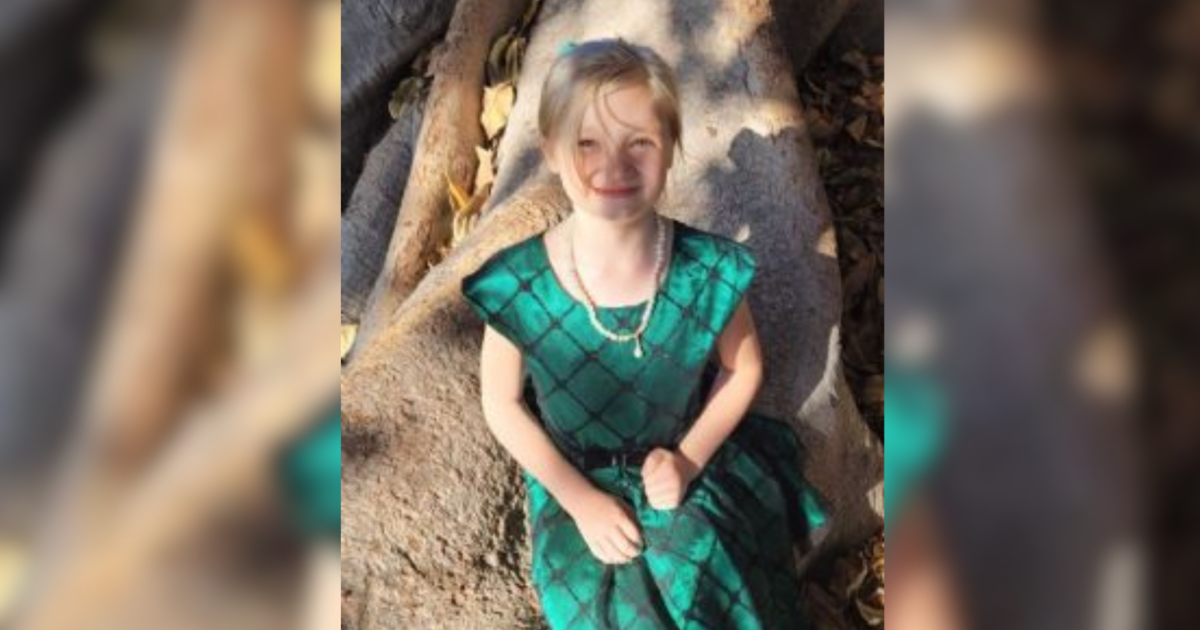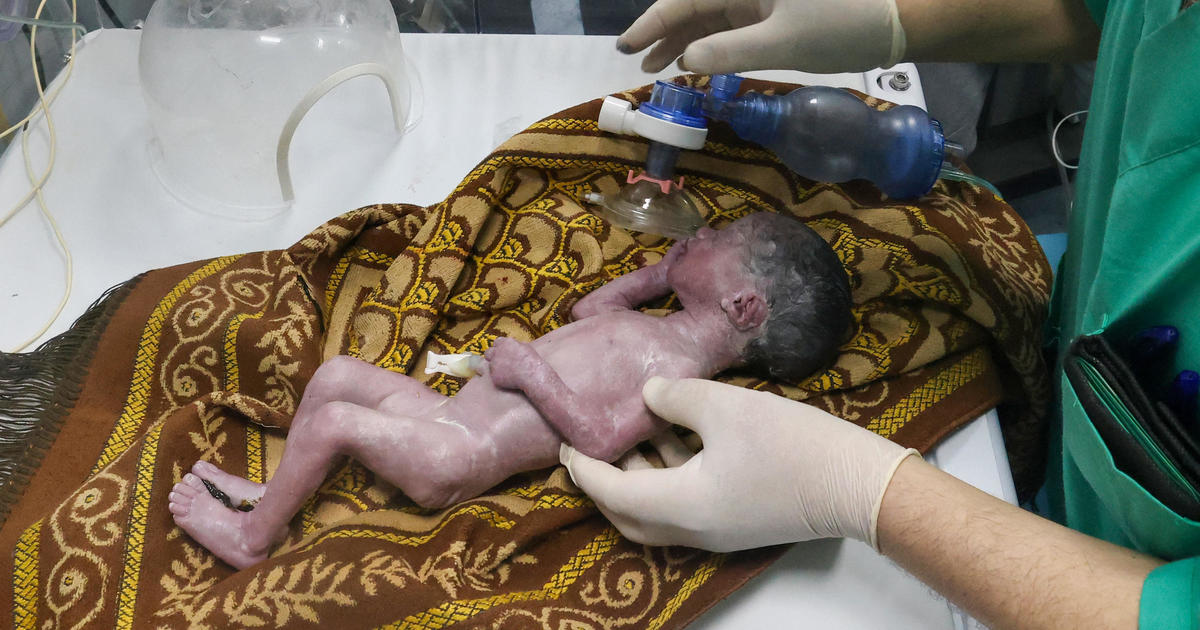"48 Hours" obtains never-before-seen footage of the mysterious killer known as the "Hat Man"
Detective Franz Helmcke had a problem. He'd caught a new case and had very little to go on. Thirty-three-year-old Kassanndra Cantrell had disappeared from her mother's house near Tacoma, Washington, and none of those closest to Kassanndra — her twin brother Rob, her mother Marie Smith and her closest friend Alexandra McNary — had any idea as to her whereabouts.
Once upon a time, Kassanndra's disappearance may have turned into a cold case, but these days digital breadcrumbs are ubiquitous. And so are cameras, as her heartbroken mother Marie pointed out: "The world is so wired, you know, with cameras. So many people have Ring cameras … so many businesses … there is just no way that somebody didn't see something."
Detective Helmcke was all too aware of that, and he also knew how to tap into all the digital material that is omnipresent in our day-to-day lives. Over the course of one month in 2020, he and his fellow investigators used cellphone records, deleted texts, vehicle location data, store receipts, surveillance videos and even an underwater dragnet to find the remains of Kassanndra Cantrell and build what they felt was a strong homicide case against her ex-boyfriend Colin Dudley.
The full story of that successful digital investigation is the subject of "Kassanndra's Secret," reported by "48 Hours" contributor Natalie Morales. An encore of the broadcast airs Saturday, Jan. 6, 2024 at 9/8c on CBS and streams on Paramount+.
Helmcke and his fellow investigators were unable to identify a murder weapon, never located any eyewitnesses or obtained a confession. Still, they were able to build a compelling digital case that seemingly tracked Dudley's every move as he tried to cover up his crime.
The trail of evidence began the very day Kassanndra was reported missing. Helmcke canvassed her neighborhood and spotted a neighbor's security camera. That camera provided the first clue — a quick video clip of Kassanndra's white Mazda driving away from her mother's house at 8:25 a.m. on August 25, 2020. There was no video of the car returning.
Helmcke also ordered an emergency trace put on Kassanndra's cellphone to learn its last known location. It showed that her phone had last pinged about two miles south of a cell tower on an island in the Puget Sound.
"One of the first things I did was just get on Google Earth and strike an arc from that tower to see where it lands," Helmcke told Morales. "It showed it landing … around this shoreline at Owen Beach [in] Point Defiance Park."
Days later, the Pierce County Metro Dive Team led by Det. Sgt. Brent Van Dyke assembled at Owen Beach on a busy summer day. The Puget Sound is nearly 100 miles long but at least they knew Kassanndra's cellphone had likely been tossed in the water from Owen Beach.
Thanks to a low tide and some ingenious guesswork, the dive team found Kassanndra's cellphone in the water after a little more than an hour when one member of the team spotted the sparkle from Kassanndra's phone case. The phone was sent to a specialist to see if any information could be recovered.
But even without that information, Det. Ryan Salmon, the cellphone forensics specialist for the Pierce County Sheriff's Department, used phone company records to see when and where Kassandra and Dudley interacted. And they later found texts from Dudley's phone that revealed she was meeting her old boyfriend at his house on the morning she disappeared.
"She said, 'I'm a bit early, is that okay?'" said Det. Salmon.
"And he says?" asked Morales.
"He says, 'yup, come on down.'" And those two messages were both deleted out of his phone," Salmon replied.
"And so, the two phones are then pinpointed in that same location at the house for a couple of hours?" asked Morales.
"Right," the detective said.
Detectives were in possession of Dudley's phone at that point and could see that he had deleted those two texts. They also determined that Kassanndra and Dudley had been in regular contact in the months leading to her disappearance. When asked about her, Dudley told Helmcke that he had not spoken to Kassanndra in years.
Knowing Dudley was lying to him, the detective began looking closely at his movements. Dudley said he had visited a Costco on the morning of Kassanndra's disappearance, so Helmcke subpoenaed store receipts and found that Dudley had bought a box of heavy-duty trash bags around 7 a.m. The store provided video of Dudley buying those bags.
The investigation was moving ahead on several fronts. Police had located Kassanndra's white Mazda with the keys inside on a street near downtown Tacoma. The location was near the city's light rail system, so Helmcke asked security personnel there if they could find any video of the car. Their cameras showed a heavyset man in a black fedora walking away from Kassanndra's car around the day she disappeared.
Helmcke had interviewed Dudley in person and felt certain from the man's gait and build that he was looking at was Colin Dudley. He had also been told that Dudley often wore a fedora and liked to be called "Hat" or "Hat Man."
Helmcke watched as cameras caught the man in the hat going into the Tacoma Dome Station parking garage around 11:40 a.m. that morning. He is then seen on the garage cameras getting into a truck and driving away. In one shot, the truck's license plate is visible, and investigators determined it belonged to Dudley. He and the "Hat Man" were one and the same.
Dudley apparently was carrying Kassanndra's cellphone with him as he left the garage because her phone records show it moving to Owen Beach where investigators believe Dudley threw it into the Puget Sound around 12:45 p.m. on August 25.
At that point, investigators still did not know where Kassanndra's body was located so they raided Dudley's house. They seized several items including a black fedora and Dudley's Chevy Colorado truck. But, after providing his fingerprints and DNA, Dudley was free to go.
"Why can't you arrest him?" Morales asked Helmcke.
"Well … he's guilty of something. But what is he guilty of?" he replied.
That's when Helmcke leaned on digital forensics yet again. He said he knew that nearly all modern cars and trucks have computers within them that contain reams of information that can be extracted. Detectives pulled the so-called black box from Dudley's Chevy truck and sent it out to be analyzed.
A company that specializes in extracting that data sent it back to Helmcke on a flash drive. When downloaded, the data showed that Dudley's truck drove very early in the morning of August 26 — the day after Kassanndra visited his house — to a wooded ravine. Investigators rushed to the scene where they found Kassanndra's remains in and around a garbage can.
In November 2022, Colin Dudley pleaded guilty to first-degree murder and was sentenced to 26 years in prison.

